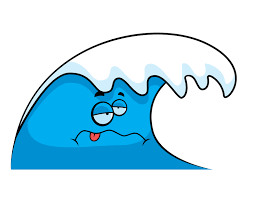Five Ways to Lose Those Dreaded Seasickness Blues!

 Ever been out on the water enjoying some fun with friends and family when all the sudden you get that awful, clammy feeling all over?
Ever been out on the water enjoying some fun with friends and family when all the sudden you get that awful, clammy feeling all over?
Sometimes it’s a slow build from the rocking and rolling action of rough seas, sometimes it’s the smells, and sometimes it’s just too much heat. Whatever the culprit that triggers that dreaded response, seasickness can happen to anyone, at any time. It’s not necessarily a regular response that happens every time you go boating … it can be an occasional bout brought on by any number of stimuli. Whatever the cause, it’s not fun!
In the situation that you, a family member or friend experiences sea sicknesses, here are some terrific tips from our friends at www.DiscoverBoating.com to help minimize the impact and get you feeling like your happy self again! There are also some super suggestions you might consider prior to an outing as a preventing measure.
A suggestion from your friends at Emerald Coast Marine … if you’re inviting newcomers to go boating with you for the first time, sharing this tip in advance may help prepare them for a great day on the water!
***
Seasickness is an uncomfortable physical reaction to motion and it’s the result of mixed messages between the eyes, ears and sensory nerves. What you see may not match what your inner ear is relating to your brain regarding balance, and what your feet are saying you should do to stay upright. Depending on circumstances, seasickness can strike anyone (even those who aren’t usually susceptible) and when it hits, it takes no prisoners.
Seasickness can range from mild feelings of discomfort to uncontrollable nausea and weakness. It’s unpleasant at the very least and on a boat, it can be downright dangerous; however, the good news is that there are ways to minimize the effects of “mal de mer” so your boating can be a happy adventure.
How to Avoid Seasickness
- Focus Eyes, Breath & Mind
Since vision plays such a part in seasickness, your eyes can help.
- Try focusing on the distant horizon.
- In fact, ask to be put on the helm. Driving a boat helps keep the focus on a distant point and keeps the brain occupied by doing something.
- Don’t read, use a camera or binoculars, or watch videos on your phone for any length of time. If you must take photos or read information, look at a distant object or the horizon periodically.
- Breathe slowly and deliberately. Inhale through the nose and exhale via the mouth.
- Get fresh air by staying on deck or opening a window if on a larger vessel. The more cool air flows over your face, the better.
- Don’t stay in hot, humid or smelly areas of the boat.
- Rest on deck if possible because enclosed spaces will enhance the imbalance signals, not to mention require someone to clean up if all goes poorly.
Finally, there’s something to be said for mind over matter. If you’re convinced you’ll be seasick, the power of suggestion may just prove you right. Don’t focus on becoming ill and your chances of staying well will increase.
- Avoid Triggers
There are a number of do’s and don’ts to follow, for example…
- Don’t eat acidic, spicy or rich foods before or during an outing.
- Do consider eating something so it’s not just stomach juices sloshing around. Try dry crackers or bread and plain water. Some people feel that ginger (in cookies, candy, capsules, tea or gum) helps.
- Do steer clear of odors such as food in the galley or diesel in the engine room because strong smells can change your condition quickly.
- Do avoid consuming alcohol because not only does it add to the disorientation, it contributes to dehydration and if vomiting begins, you may not be able to hold down anything including water.
- Don’t smoke.
- Change Your Location and Orientation
The motion on a boat varies with location. The bow and stern will pitch, roll and yaw more than the middle or the vortex around which the movement is happening. If possible, try to stay amidships, in the calmest section of a vessel. The main deck of a boat moves less than the tall flybridge so stay low because motion is exaggerated the higher you go.
“Stay out of the sun. Becoming overheated can cause seasickness so find a shady spot or consider cooling off by going for a swim if the boat is stationary.
“Since staying upright can be a challenge with all the different signals your body is experiencing, try laying down—specifically on your back. Not only will this clam the inner ear, it may help in case you’re fatigued by the nausea.
- Opt for Medication
There are numerous over-the-counter oral medications that mitigate or even eliminate seasickness altogether. Bonine and Dramamine are two name brands, while the generic of these (that can be significantly cheaper) is called meclizine.
Discuss taking these medications with your doctor prior to your trip to ensure there will be no adverse interactions with whatever meds you may also be taking. Your doctor may prescribe medicine delivered by a scopolamine patch (Transderm Scop). Place the patch on the neck behind your ear but beware that the patch, like meclizine, can cause drowsiness and dry mouth.
Finally, you can opt for a mechanical method via an acupressure wristband. The pressure on the inside of your wrist may be enough to stave off the effects of seasickness and there will be no drug interactions or side effects. These bands are inexpensive, don’t need a prescription and can be purchased in most drug stores.
- Plan Ahead
How you prepare for and start your day of boating is important.
- Be well rested. Fatigue can contribute to seasickness.
- Also, come dressed for the day. Hypothermia exacerbates seasickness.
- If you’re taking oral medication, take the first dose the night before. Not only will it help you sleep better, but you’ll be more alert on the boat the next day and you won’t be guessing whether it’s time to take meds or push through.
Seasickness is a sneaky condition and you can go from uncomfortable to vomiting to depleted very quickly. A little planning and research can help keep seasickness at bay and positive attitude will definitely help get you through any discomfort so set your worries aside and have fun while boating.
